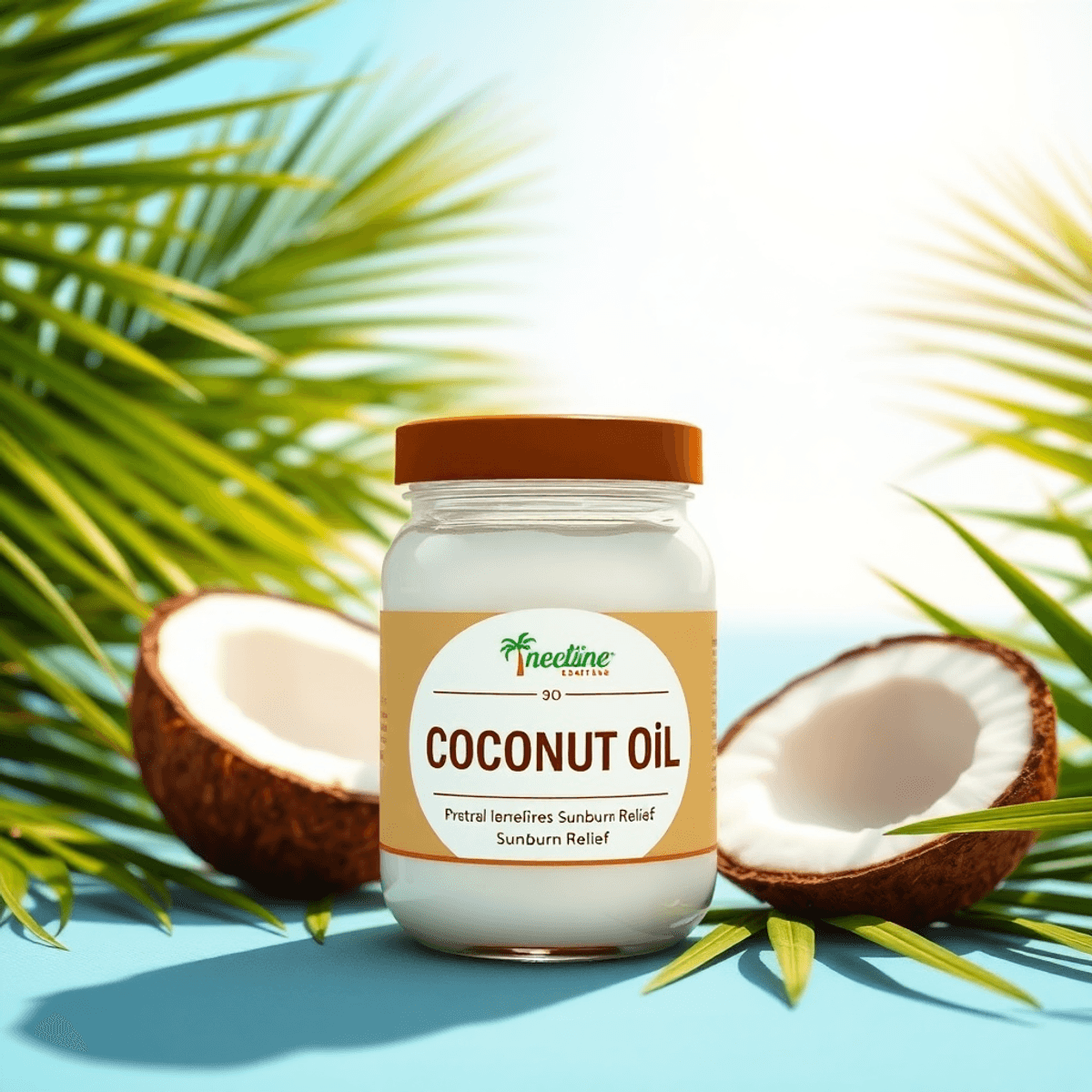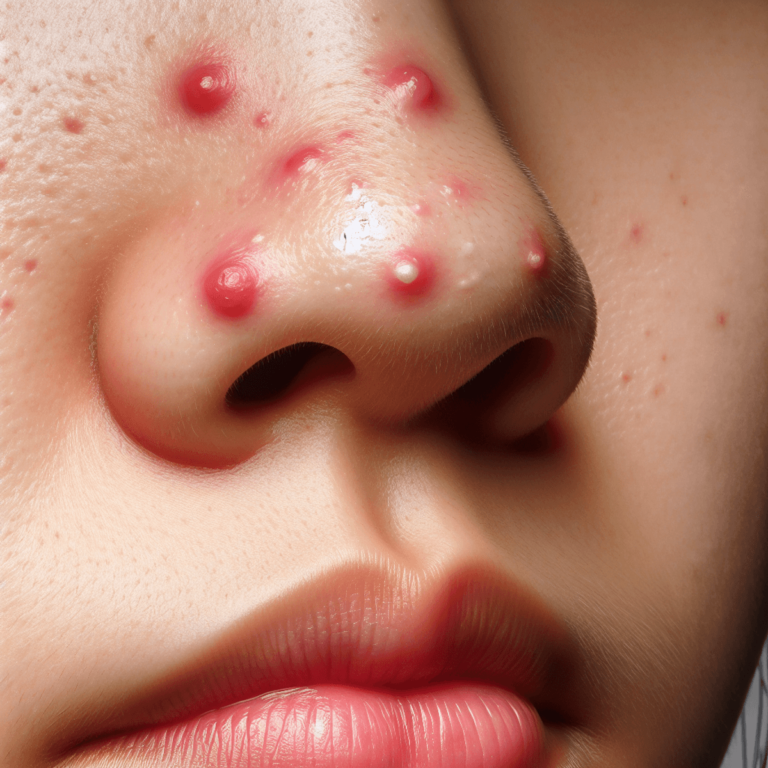Can You Use Coconut Oil on a Sunburn? We Asked Dermatologists

Introduction
Coconut oil has become a popular natural remedy in the skincare world. From removing makeup to deep conditioning treatments, this versatile ingredient has gained a loyal following among beauty enthusiasts. Its popularity is due to its natural origins and believed healing properties.
When summer comes and sunburns occur, many people reach for their trusted jar of coconut oil for relief. The question “Can you use coconut oil on a sunburn?” is often discussed in skincare conversations and on social media.
To answer this question accurately, we consulted board-certified dermatologists. These skin health experts provide evidence-based insights about using coconut oil on sunburned skin, helping you make informed decisions about your skincare routine.
Why Expert Advice Matters:
- Sunburns represent serious skin damage
- Incorrect treatment can worsen skin conditions
- Professional guidance ensures safe healing
Your skin deserves careful attention, especially when it’s damaged by UV rays. While natural remedies can be tempting, not all solutions work equally well for sunburn relief. Let’s find out what dermatologists really think about using coconut oil on sunburned skin.
Understanding Sunburn
Sunburn occurs when your skin experiences damage from excessive exposure to ultraviolet (UV) radiation, primarily from the sun. This radiation penetrates the outer layer of your skin, causing cellular damage and triggering an inflammatory response.
Common Symptoms of Sunburn:
- Redness and warmth in affected areas
- Pain and tenderness when touched
- Swelling and inflammation
- Skin that feels tight or itchy
- Blistering in severe cases
- Peeling skin 3-7 days after exposure
Severity Indicators:
- Mild Sunburn: Light redness, mild discomfort
- Moderate Sunburn: Intense redness, pain, slight swelling
- Severe Sunburn: Blisters, severe pain, fever, chills
The damage from UV radiation extends beyond immediate discomfort. Your skin cells suffer DNA damage that can lead to significant health concerns:
Long-term Effects of UV Exposure:
- Premature aging (photoaging)
- Dark spots and hyperpigmentation
- Wrinkles and loss of elasticity
- Increased risk of skin cancer
- Weakened immune system response
- Permanent skin texture changes
Your skin remembers every sunburn. Each exposure to UV radiation accumulates over time, creating lasting damage to skin cells. The UV rays break down collagen and elastin fibers, essential proteins that keep your skin firm and youthful. This damage manifests as leather-like texture, deep wrinkles, and age spots.
Research shows that experiencing just five sunburns doubles your risk of developing melanoma, the most dangerous form of skin cancer. UV radiation also suppresses your skin’s immune system, reducing its ability to repair damage and fight off harmful substances.
The intensity of UV radiation varies based on several factors:
- Time of day
- Season
- Geographic location
- Altitude
- Weather conditions
- Reflective surfaces (water, snow, sand)
The Role of Coconut Oil in Skincare
Coconut oil is a popular natural skincare ingredient derived from the meat of mature coconuts. It can be extracted using either wet or dry processing methods. The wet process involves extracting the oil from fresh coconut meat, while dry processing uses dried coconut meat (copra) to produce the oil. Virgin coconut oil, obtained through wet processing, retains more beneficial compounds and nutrients.
Composition and Properties
The power of coconut oil lies in its rich composition of medium-chain fatty acids:
- Lauric Acid (49%): Acts as a natural antimicrobial agent
- Caprylic Acid (8%): Provides antifungal properties
- Capric Acid (7%): Offers additional antimicrobial benefits
- Vitamin E: Functions as a natural antioxidant
Beneficial Properties in Skincare
Coconut oil’s molecular structure allows it to penetrate the skin effectively, providing several benefits:
- Moisture Retention: Creates a protective barrier that locks in hydration
- Anti-inflammatory Effects: Helps reduce skin redness and irritation
- Antioxidant Protection: Guards against free radical damage
- Barrier Function: Strengthens the skin’s natural protective layer
The Science Behind Skin Barrier Repair
The medium-chain fatty acids in coconut oil play a crucial role in maintaining skin health. These compounds integrate into the skin’s lipid layer, reinforcing its natural barrier function. Lauric acid, the primary fatty acid in coconut oil, demonstrates remarkable ability to:
- Strengthen cell membranes
- Support natural collagen production
- Enhance skin elasticity
- Protect against environmental stressors
Potential Risks and Considerations
Despite its benefits, coconut oil presents several risks when applied to damaged or sensitive skin:
Occlusive Properties
Coconut oil has occlusive properties, meaning it creates a thick barrier on the skin. This can be problematic in certain situations:
- It may trap heat in sunburned areas, potentially worsening the burn.
- It has the potential to delay natural healing processes by preventing moisture loss.
Comedogenic Effects
Coconut oil ranks 4 out of 5 on the comedogenic scale, indicating its high potential for clogging pores. This can be particularly problematic for individuals with acne-prone skin.
Allergic Reactions
While rare, some individuals may experience allergic reactions to coconut oil. It’s important to perform a patch test before using it extensively on the skin.
In conclusion, coconut oil can be a beneficial addition to skincare routines due to its moisturizing, anti-inflammatory, and antioxidant properties. However, it’s essential to consider individual skin types and conditions when incorporating it into daily regimens.
Expert Opinions from Dermatologists Against Using Coconut Oil on Sunburns
Leading dermatologists express significant concerns about applying coconut oil to sunburned skin. Dr. Sarah Mitchell, a board-certified dermatologist, explains:
“Coconut oil creates an occlusive barrier on the skin’s surface, trapping heat within the damaged tissue. This trapped heat can intensify inflammation and delay the healing process.”
Why Dermatologists Advise Against Coconut Oil on Sunburns
The medical community highlights several key issues:
- Heat Retention: Coconut oil’s thick consistency forms a barrier that prevents proper heat dissipation from sunburned skin
- Increased Inflammation: The oil’s occlusive properties can amplify existing inflammation in damaged skin cells
- Bacterial Growth Risk: Non-sterile coconut oil may introduce bacteria to compromised skin
- Delayed Healing: The oil can interfere with the skin’s natural repair mechanisms
Dr. James Chen, a specialist in UV-related skin damage, points out that applying coconut oil to sunburned skin can create a greenhouse effect. “The skin needs to breathe and release heat to heal properly. Coconut oil prevents this essential process.”
Research from the American Academy of Dermatology indicates that sunburned skin requires specific care focused on reducing inflammation and supporting natural healing processes. Coconut oil’s properties work against these objectives by:
- Disrupting Temperature Regulation
- Prevents proper cooling of damaged tissue
- Increases discomfort and pain
- Compromising Barrier Function
- Interferes with natural skin barrier repair
- May lead to increased sensitivity
- Causing Chemical Reactions
- The oil’s compounds can react with damaged skin
- Potential for allergic responses increases
Dr. Rachel Thompson, a clinical dermatologist specializing in burn treatment, notes: “Patients who apply coconut oil to sunburns often report increased pain and longer healing times. The skin becomes more susceptible to peeling and potential scarring.”
These expert insights align with clinical observations showing that sunburned skin requires treatments that reduce inflammation and support the skin’s natural healing mechanisms – properties that coconut oil lacks in this context.
Moreover, it’s crucial to understand the relationship between skin pH and barrier function. An optimal pH level is essential for maintaining healthy skin barriers, which coconut oil may disrupt further due to its occlusive nature. Additionally, studies suggest that certain treatments have been found beneficial for sunburns, such as those outlined in this research article, which provides valuable insights into effective sunburn management strategies.
Recommended Alternatives for Sunburn Relief
Dermatologists recommend several proven remedies to soothe sunburned skin and promote healing:
1. Aloe Vera Gel
- Pure, refrigerated aloe vera provides immediate cooling relief
- Contains natural anti-inflammatory compounds
- Helps reduce redness and skin irritation
- Choose fragrance-free, dye-free formulations
2. Cold Compresses
- Apply cool, damp cloths to affected areas
- Reduces inflammation and skin temperature
- Use for 10-15 minutes at a time
- Avoid direct ice contact with skin
3. Specialized After-Sun Products
- Look for ingredients like:
- Glycerin
- Hyaluronic acid
- Ceramides
- Panthenol
- Choose alcohol-free formulations
4. OTC Pain Relief
- Hydrocortisone cream (1%) reduces inflammation
- NSAIDs help manage pain and swelling
- Apply as directed on packaging
5. Gentle Moisturizers
- Use fragrance-free, lightweight formulas
- Apply after skin temperature normalizes
- Select products with minimal ingredients
- Avoid petroleum-based products that trap heat
These dermatologist-approved alternatives provide targeted relief without risking further irritation to damaged skin. Regular application of these remedies helps maintain skin hydration and supports the natural healing process.
Misconceptions About Coconut Oil and Sun Protection
There’s a common myth in the world of natural skincare that says coconut oil provides strong protection against UV rays. Because of this belief, many people have started using coconut oil instead of their regular sunscreen, which is a risky move that can leave their skin exposed to sun damage.
Let’s take a closer look at the science behind UV protection:
- Coconut oil has an SPF rating of 4-5 at best
- Medical-grade sunscreens offer SPF 30-50+ protection
- It’s important to use products that provide broad-spectrum protection against both UVA and UVB rays
The natural substances found in coconut oil only absorb a small amount of UV radiation. This limited level of protection falls far short of what dermatologists recommend for proper sun defense.
Here are some common misconceptions about coconut oil’s ability to protect against the sun:
- “Natural oils are better than chemical sunscreens” – This is false
- “Ancient cultures used coconut oil to protect themselves from the sun” – This is not a valid solution for modern times
- “The antioxidants in coconut oil can prevent sun damage” – This is not enough protection
Studies have shown that depending solely on coconut oil for UV protection puts you at risk for:
- Premature aging of the skin
- Higher chances of developing melanoma
- Severe sunburns
- Long-term damage to the skin
Dermatologists emphasize the importance of using broad-spectrum sunscreen with the right SPF ratings to effectively shield yourself from harmful UV rays.
Special Considerations for Different Skin Types
Your skin type plays a crucial role in determining how it reacts to coconut oil, particularly when dealing with sunburn. Here’s what you need to know based on your skin type:
Oily/Acne-Prone Skin
- Coconut oil ranks high on the comedogenic scale (4 out of 5)
- Can clog pores and trigger breakouts
- May create a barrier that traps heat in sunburned areas
- Risk of developing post-inflammatory hyperpigmentation increases
Sensitive Skin
- Prone to adverse reactions from coconut oil’s components
- Higher risk of developing contact dermatitis
- May experience increased redness and irritation
- Can worsen existing skin conditions
Dry Skin
- Might benefit from coconut oil’s moisturizing properties after sunburn heals
- Should still avoid application on fresh sunburns
- Risk of delayed healing due to oil’s occlusive nature
Combination Skin
- Reactions vary depending on affected areas
- T-zone areas may experience increased oiliness
- Can lead to uneven healing of sunburned areas
If you’re unsure about your skin type’s reaction to coconut oil, perform a patch test on a small, unburned area first. Remember that sunburned skin requires gentle, dermatologist-approved treatments regardless of your skin type.
Conclusion
Making informed skincare decisions requires understanding both the benefits and potential risks of natural remedies. While coconut oil offers various skincare advantages, its application on sunburned skin demands careful consideration.
Your skin’s health deserves professional guidance, particularly when dealing with sun damage. A dermatologist can:
- Assess your specific skin condition
- Recommend appropriate treatments
- Help prevent future complications
- Create a personalized skincare routine
Safe skincare practices start with understanding your skin’s unique needs. Different skin types react differently to treatments, making professional consultation essential for optimal results.
Remember these key points for sunburn care:
- Listen to your skin: Stop using any product that causes irritation
- Document reactions: Keep track of how your skin responds to different treatments
- Follow medical advice: Stick to dermatologist-recommended products
- Prevention first: Use proper sun protection to avoid future burns
Professional guidance ensures you receive appropriate care while avoiding potential complications. Your dermatologist stays current with skincare research and can provide evidence-based recommendations tailored to your needs.
FAQs (Frequently Asked Questions)
Can coconut oil be used on sunburned skin?
While coconut oil has moisturizing and anti-inflammatory properties, dermatologists generally advise against using it on sunburns as it can irritate already damaged skin and hinder the natural healing process.
What are the symptoms of sunburn?
Sunburn symptoms include redness, swelling, pain, and in severe cases, blisters. Long-term exposure to UV radiation can lead to more serious skin damage and health issues.
What are the benefits of coconut oil in skincare?
Coconut oil is known for its moisturizing properties due to medium-chain fatty acids, particularly lauric acid. It helps repair the skin barrier, locks in moisture, and provides antioxidant benefits that may combat skin aging.
What alternatives do dermatologists recommend for treating sunburn?
Dermatologists recommend alternatives such as aloe vera gel and emollient lotions for effective sunburn relief. These options soothe the skin without the irritation that coconut oil may cause.
Does coconut oil provide UV protection?
No, coconut oil does not provide adequate UV protection and should not be used as a substitute for sunscreen. It’s important to use proper sun protection to prevent sunburn.
How does skin type affect the use of coconut oil?
Different skin types react differently to coconut oil. Sensitive or acne-prone skin may experience irritation or breakouts when using coconut oil, so it’s essential to consider your skin type before application.










